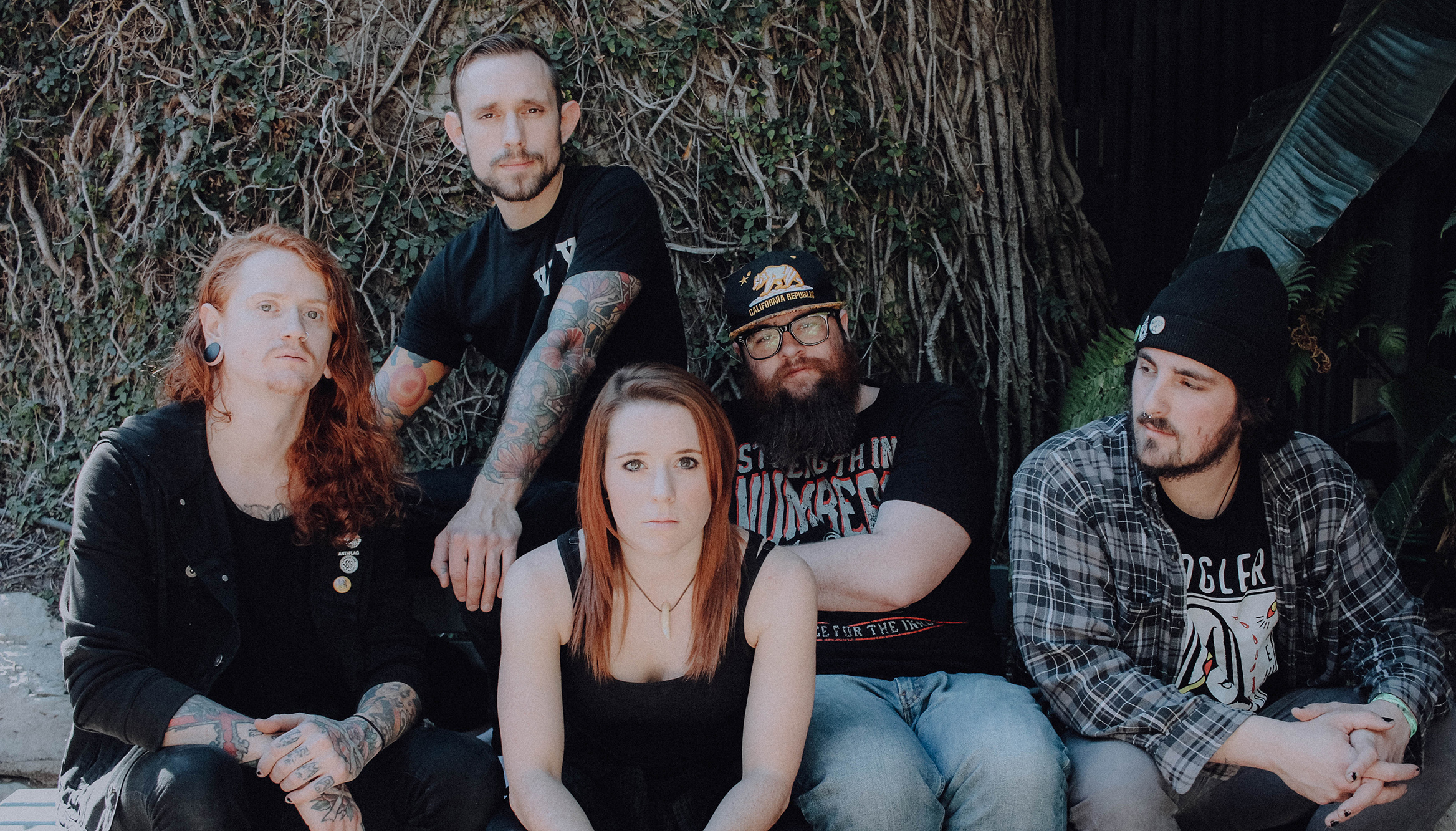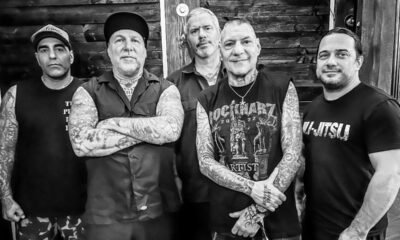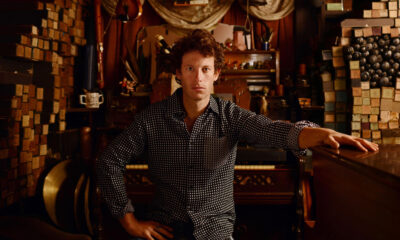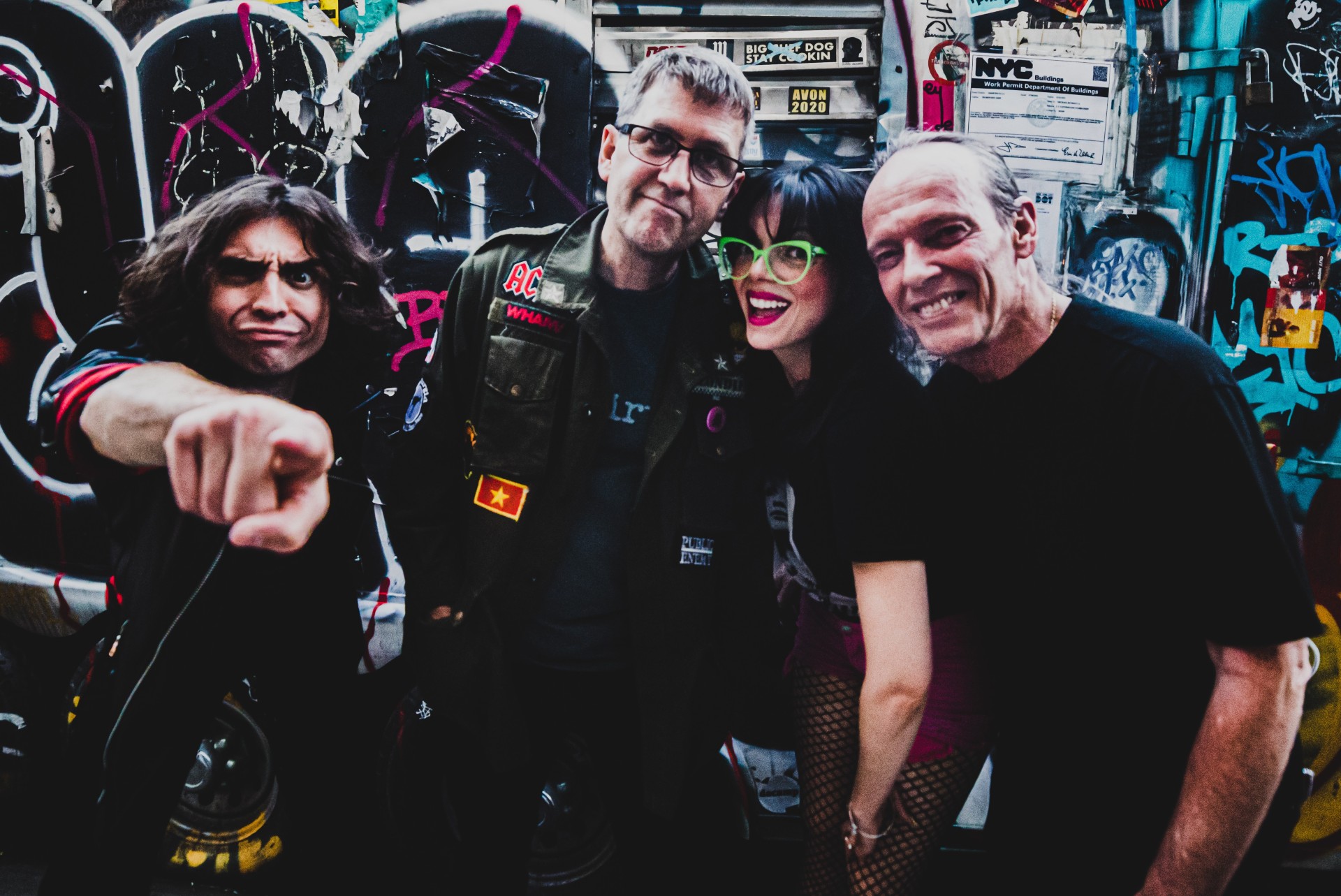Hardcore/Punk
Baltimore’s Sharptooth Discuss the Hardcore Scene, Making a Difference Through Music and New Album ‘Transitional Forms’
Baltimore hardcore band Sharptooth discuss hardcore, new album ‘Transitional Forms’ and the importance of making a difference through music.

Although the hardcore scene is full of “generic mosh” bands, that certainly isn’t one criticism you could level at Baltimore hardcore quintet Sharptooth. Last month the band dropped new album Transitional Forms, an album they described as “unapologetically enraged.” We caught up with the band to talk more about the album, the hardcore scene and some of the subjects the band have explored on the new album.
Thank you for your time, you just released your stunning new album, how have plans been affected by the current restrictions?
Lance: “It’s been pretty brutal in some ways. And nice in others. We’ve had a pretty awesome reaction to the release and people have been receptive. We’re just thankful we shot all the videos and got all the prep work done right before COVID hit really hard. So that’s been great.”
Keith: “Well this record would’ve been released in May if there wasn’t a global pandemic, we also had two tours fall through. Although we were fortunate enough to not be on the road when it hit.”
Bruno: “Thank you for thinking so! Well, all of our touring plans have been thrown out the window, so I suppose all of our plans have been cancelled in a way. I think everyone around the music industry is scrambling in an attempt to adjust.”
Matt: “Thanks for the kind words! Everything’s changed ya know. No tours, no in-person promo, no nothin’. It sucks!”
The new record is described as “unapologetically enraged” and unlike the targets in the opening song, you’ve not wasted the platform you’ve been given to speak your mind? How important is it to write something more than just a “generic mosh” album?
Lance: “We just want to have a deeper purpose in our music. We write our music with a view on the world around us and a plan to try and make it better or at least try and get a message out there for people to understand. That’s kind of our mission statement behind making music that’s so “violent”.”
Keith: “Punk and hardcore have always been message-oriented music. I like a good slam as much as the next person, but to me, you should be saying something with that rage. I think now more than ever it’s important to be using your platforms as artists to speak out and push for change.”
Bruno: “People make art for a lot of different reasons, and I’m not here to degrade anyone for expressing themselves in a way that feels fulfilling on a personal level. I think the difference for us is that it feels like much of the genre has been profoundly depoliticized, which is quite sad considering some of punk’s radical origins. In this way, we recognize that music and the community surrounding it are big reasons for why we began questioning ourselves and the world around us at a younger age than some of our peers, and in that same spirit, we want to be a part of that process for future generations, because we recognize that progress and history aren’t linear, but rather, require continuous work. Unfortunately, much of my critical thinking skills at an early age didn’t come from schooling, but instead, came from the music I was listening to.”
Obviously there are plenty of fans out there going through similar turmoil to some of the personal subjects Lauren explores on the record. Do you speak to those fans at shows and online?
Lance: “I try to. I’m into a lot of progressive channels and I hear and see a lot of the news that mainstream media likes to ignore because it’s not interesting to them or it doesn’t make them money. Trying to be that person in someone’s life who feels ignored is super important. I had a lot of issues myself in my life and I had a difficult time trying to find my place in the world. I feel like with this outlet, it’s super important to be that for someone who might relate to what we’re putting out there for them. I’ve always felt uncomfortable calling people who like my music “fans” on top of all that. They’re my friends. I wanna be there for my friends.”
Keith: “I’m not the most outgoing person, but there are several fans I have met who have become close friends who I talk to on a regular basis. As a rule, we try to make as much time for talking to people as possible but we’re also not therapists or mental health professionals in any way shape or form. We do carry resources and try to refer people to the help they need if we can.”
Bruno: “At shows, we always take time to talk to people, and I know I always try to make myself available and (hopefully) approachable. Online I also try to do my best to answer anything that gets sent my way while making sure not to overextend myself nor have my boundaries crossed. It can be a bit of a tough balance at times, because although I’ve worked in fields surrounding trauma before, I’m not a trained therapist. I’ve always found it’s better to advocate than assist from this position, where I can send folks resources instead of direct help if that distinction makes any sense. While folks can always reach out to me, I also don’t want people to think that I’m any sort of savior for their problems, you know? I’m just a dude that plays in a band.”
Matt: “Of course, getting to speak to fans at shows about everything from music to real-life shit is one of the best parts about being on the road. Sharptooth fans are always incredibly kind people, I love them.”
In these particularly challenging times, what advice do you give to fans going through their own dark times and struggling with mental health issues?
Lance: “If I could say anything, just look at previous times in history across the world. We’ve been through some very crazy stuff in the past and pulled through. Sometimes looking into the past to set what can happen in the future is healthy. In many ways, this is unprecedented for sure, and we should treat it as such. But over time, this will pass. And we will make it through all this, because above all else, we do not have any other options. Know that there are people just like you and I going through this and the least we can do is be there for each other. And also be there to unite when all this blows over.”
Keith: “I have to remind myself of this every day and I’m not very good at following it myself, but reach out to your support system and the people around you. You’re not a burden for feeling things and needing human connection. Whatever you’re going through, going through it alone will make it harder.”
Bruno: “I know that the only thing that has ever helped me through depression has been connecting myself to bigger things outside of me, whether that’s a cause or a community. Anything that can de-center yourself I’ve always found to be helpful. I think it’s also important to be honest with those around you, so you can begin to sort through which people in your life truly care about you, and which ones you may want to distance yourself from. However, all help isn’t helpful, so this might not be what’s best for you. Only you are the expert of your own life.”
A lot of these fans connect to hardcore as an escape from personal issues, do you remember the point you discovered hardcore and what triggered that connection to a world that is more than just music?
Lance: “I connected to hardcore when I was much younger. I was going through some serious hardships and a lot of friends chose to go to the substance abuse route around me. While I saw that in my own family, we had huge issues with that. And I discovered Straight Edge through a friend. This was in 1999 or 1998, so when I heard that and looked up Minor Threat and also found out they were from the Washington DC area like me… I was all over it. Changed my life forever.”
Keith: “I was 12 or 13 when I started going to local hardcore shows. For me getting into hardcore wasn’t so much of an escape as it was discovering community and that I wasn’t alone in the disenfranchisement I was feeling. Finding a place where feeling hurt, being angry, being outraged, and expressing those feelings was not only ok but encouraged.”
Bruno: “Hmm, that’s a tough question to answer. While music had always been some part of my life, I think sometime in middle school I began to discover bands that had a little more lyrical substance than what I grew up singing along to. I think a band that meant a lot to me in my early teenage years was Thursday, because they sorta broke the mold both sonically and in terms of content, from what other bands were doing at the time. And in some ways, they were deeply despised for it. However, I remember being deeply moved by the song, “Autobiography of a Nation,” along with their subsequent release of War All The Time. That band became my entry point into heavier music that wasn’t just nu-metal haha.”
Now you’re not just the kids in the pit, you’re on stage with your platform to make a change. What is your goal as a band?
Lance: “Make a place of fun, belonging and education for people willing to understand. There doesn’t seem to be a lot of that in the world right now sadly. And in some cases, it feels like it’s getting worse. Trying to be a voice of reason is where we’re coming from and want to make our mark.”
Keith: “Same as it’s always been. Fight against all forms of hate and marginalization, spread information to people who need it, and try to make a positive difference in any way we can.”
Bruno: “I think the main reason why I joined this band in the first place was to have a positive impact on young people, and I was moved by how Lauren was able to help foster space for survivors of abuse, along with women and queer people. My hope for this band is that we’re able to help people to either question something untested, or to help people feel more confident in using their voice and bringing that energy from outside of the venue into the real world.”
Matt: “Make enough money that we can stop talking about politics forever. Kidding! The main goal for me personally is to be like the bands I grew up on that cared about more than just the music, Anti-Flag, Minor Threat, etc. Using music as a vessel for politics and (hopefully) social change is a dream come true.”
Away from the personal subjects, there are tracks on the album that deal with more social issues. Looking at the planet around you, there must be plenty of inspiration for future work?
Lance: “There will be several lifetimes of work for us. A lot of these issues are stretched over the entire existence of humans being able to comprehend empathy. And as long as we’re around, we’re going to try and share that. And even if the world somehow becomes some utopia, we’ll try and educate even further the teachings of our past, so we don’t forget it in the future.”
Keith: “Honestly many of the issues that have been brought to light aren’t things that haven’t been there. So while yes there’s inspiration there, it’s kind of an “if you haven’t seen these you haven’t been paying attention” situation. We’ve addressed these things on our last album and many of us have in previous bands. There’s always inspiration, there’s always new stories, but there aren’t new issues and it’s sad to me that a lot of people are seeing these things for the first time now, but it also gives me hope that with more awareness and more active pushback that these things can change.”
Bruno: “Unfortunately, for the foreseeable future of my lifetime, there will always be some bad things happening in the world that require redress. Still, I think it’s important to adjust your focus, and remember that for every burning building, there is someone else running inside to help.”
What do you hope the world learns from not only the Covid-19 situation but the race issues we’ve seen across the world?
Lance: “That, at least in the United States, we have a wealth gap. Opportunities have been in free fall in the less wealthy communities across here and the world really, for a very long time. Our governments and corporations have no interest in helping people. They have all the interest in helping a profit motive. The problems are systemic and deep. And that is because they were created that way. They want all this so be complicated and a difficult problem to solve for everyone, while behind our backs, cut deals with politicians and international corporations to further help themselves. Corruption on an epic scale.”
Keith: “From Covid-19: The United States government is acting against its citizens (and the world’s) best interests. The GOP and DNC need to be dismantled. Many of the “lifer” elected officials need to be removed from office. Redistribute wealth. Eat the rich.”
Bruno: “I hope that people recognize that all of these issues are systemic in nature and that the ruling capitalist elite is not your friends.”
Matt: “I hope people see where the money in our country is really at. We’ve had one of the worst responses to COVID because we have one of the worst healthcare systems. This is the direct result of putting profit over people and it’s disgusting. As long as there’s financial interest behind everything from health care to policing we’ll never live in a more compassionate country.”

Artwork for ‘Transitional Forms’ by Sharptooth
Having a platform to speak your mind and connect with fans, what is the most rewarding aspect of what you do?
Lance: “The most rewarding thing for me with our friends is seeing we made any difference for their lives. And it reminds me we’re not the only people feeling the way we do about things going on. I can only relate it to not seeing a loved one for many years with the relief it brings.”
Keith: “I hate the concept of fans [laughs], barricades, putting people on pedestals, etc., one of the things that drew me to hardcore and all adjacent music was the breaking down of the barriers between the people onstage and the people in the audience. In that way, people singing along and connecting to the music is one of the most rewarding things. On our first full US tour, there was a person in the front row for us (as the opening band) who knew every word to every song despite the fact that we had never played within 500 miles of that city. That person is now a close friend of ours. Those connections and seeing the way that our art can help someone is absolutely the most rewarding experience.”
Bruno: “I think anytime you can help people feel seen or heard is profoundly powerful, especially for young people who are seldom respected or taken seriously.”
Matt: “After every set people smile at me and tell me I’m good at drums and it feels nice.”
A lot of people outside the scene would see a band like Sharptooth as “just noise” especially in Lauren’s “other life”, how do you explain what Sharptooth and the hardcore scene is about?
Lance: “For me, the hardcore scene is having a message and trying to make a difference with rhythms and music. Using that platform amplifies what you’re trying to say on an epic scale. From its inception, hardcore has always been about a deeper meaning and purpose. You’re supposed to walk away enlightened and with drive.”
Keith: “I say “we play really heavy stuff” and when they try to compare it to some radio band I usually say “no way heavier” although once I got thrown for a loop when some dude immediately went to Cattle Decapitation, “Nah man I wish, that band fuckin’ rips though.”
Bruno: “I would tell those people to Google: “ethnomusicology.” Okay, in all seriousness, I think that “hardcore” and the “scene” are not monolithic. There are all different types of bands and spaces, all with different reasons for expressing anger and frustration. I took a class with the activist Leymah Gbowee for a semester, and something that she said once reminds me of this question. To paraphrase, “You can either use your anger like Hitler, or you can use your anger like Martin Luther King Jr.” It’s okay to be angry, but what are you angry about and how will you express it constructively?”
Thanks for your time and good luck with the incredible new record. Just to finish, do you have a message for fans out there reading this?
Lance: “Thank you for your time. Keep it real, keep it positive and keep motivating me.”
Keith: “Follow @worldsgreatestmogul on instagram. Dudes hilarious. If you’re ever coming to a show and want to play Magic The Gathering or Pokémon TCG I always have decks let’s do it.”
Bruno: “Thank you! Be kind.”
Matt: “Stream The Hot ‘n’ Heavy by Drop Dead, Gorgeous.”
Transitional Forms is out now on Pure Noise Records so have a read of our review then grab your copy here.
-

 Music3 days ago
Music3 days agoTake That (w/ Olly Murs) Kick Off Four-Night Leeds Stint with Hit-Laden Spectacular [Photos]
-

 Alternative/Rock4 days ago
Alternative/Rock4 days agoThe V13 Fix #010 w/ High on Fire, NOFX, My Dying Bride and more
-

 Hardcore/Punk2 weeks ago
Hardcore/Punk2 weeks agoHastings Beat Punks Kid Kapichi Vent Their Frustrations at Leeds Beckett University [Photos]
-

 Culture2 weeks ago
Culture2 weeks agoCirque Du Soleil OVO Takes Leeds Fans on a Unique, Unforgettable Journey [Photos]
-

 Alternative/Rock1 week ago
Alternative/Rock1 week agoA Rejuvenated Dream State are ‘Still Dreaming’ as They Bounce Into Manchester YES [Photos]
-

 Features3 days ago
Features3 days agoTour Diary: Gen & The Degenerates Party Their Way Across America
-

 Culture6 days ago
Culture6 days agoDan Carter & George Miller Chat Foodinati Live, Heavy Metal Charities and Pre-Gig Meals
-

 Music5 days ago
Music5 days agoReclusive Producer Stumbleine Premieres Beat-Driven New Single “Cinderhaze”










